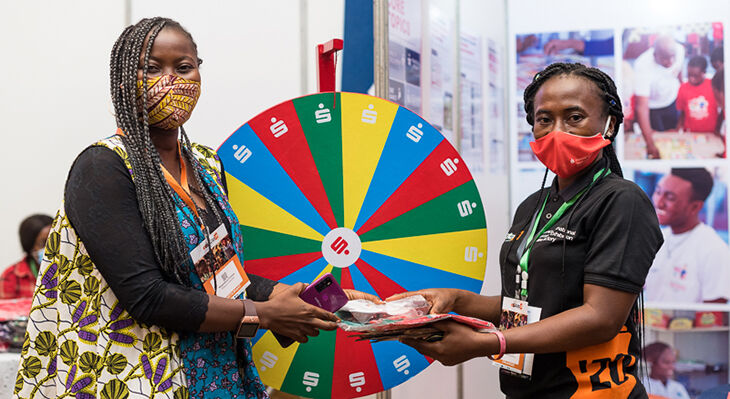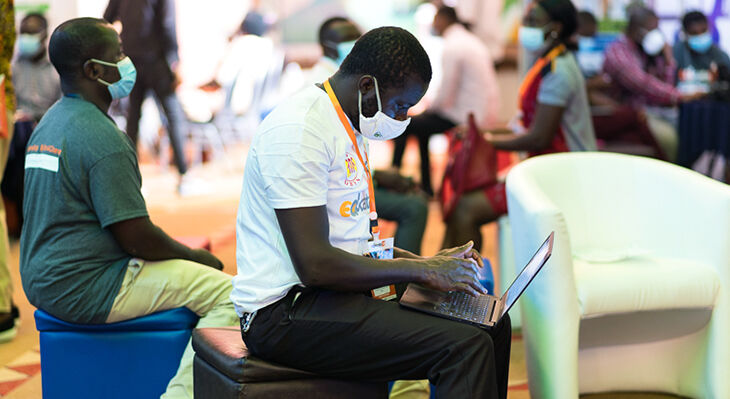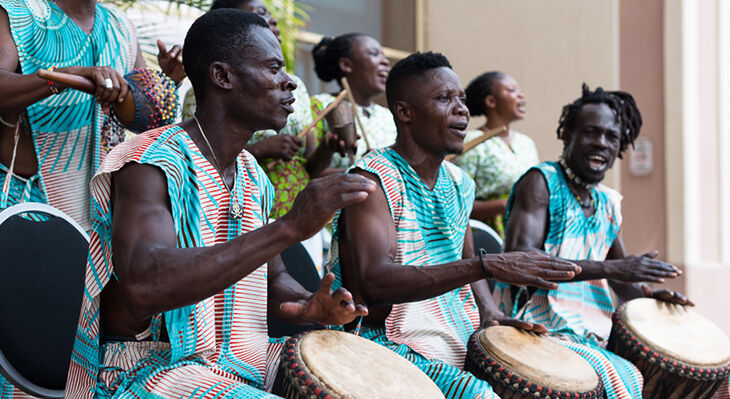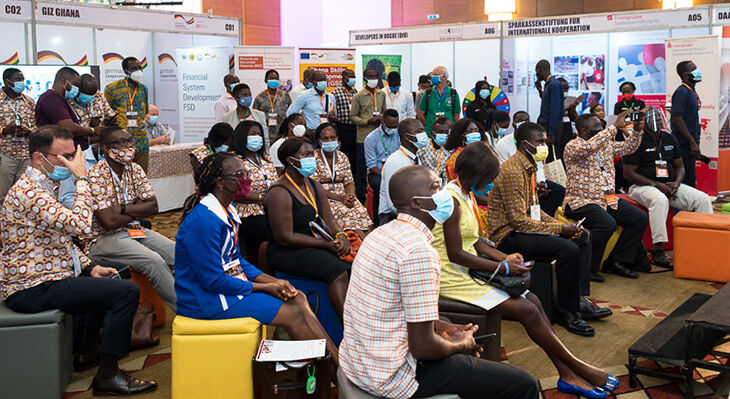educataGhana: Education meets practical work
Ghana is reforming its TVET system, using the German dual system for orientation. GOVET has been advising Ghana since 2019. At the educataGhana education exhibition and conference on 19 October, experts discussed with GOVET what is important when it comes to strengthening Ghanaian TVET.
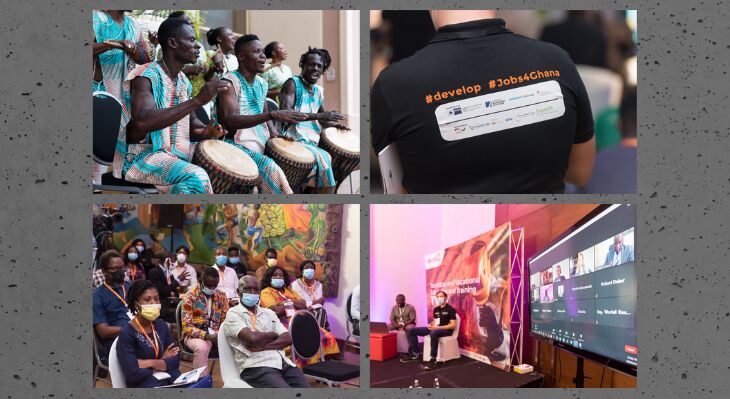
One last check that the microphone and camera are working. Then a click on the Join button to dial in. Quickly ask whether everyone can see and hear you. Everything was different at the 2020 edition of educataGhana, too. The conference, which sees itself as an ideas factory, took place for the second time this year – over two days in a hybrid format, online and in Accra.
On 19 and 20 October, companies, government institutions and education practitioners came together with German partners. In a total of 26 expert panels, they discussed core issues that affect education, TVET and companies: What role does education play when it comes to limiting climate change? How is COVID-19 affecting TVET in Ghana? Which opportunities does digitisation bring for the education field? How can the bilateral cooperation with Germany support the development of an education system in Ghana that is fit for the future?
educataGhana also offered opportunities for networking and exchanging information. For example, German education providers used the virtual format in the scope of a business development trip, organised by iMOVE in cooperation with AfrikaVerein.
Vocational education reforms – fit for the working world of tomorrow

The online session on 19 October on vocational education reform in Ghana once again showed the importance of cross-country cooperation in the education field. Five panel participants from government institutions and business discussed the topic of education reforms. Peter Pfaffe from iMOVE moderated the opening panel.
Dr Fred Asamoah, Director of COTVET (the Ghanaian Council for Technical Vocational Education and Training, soon to be Commission) started by stating that Ghana’s technical and vocational education and training is currently undergoing major structural changes. A new law is to give COTVET greater responsibility. The law was approved by Parliament in June 2020 and has been in force since August. According to Dr Fred Asamoah, Ghanaian TVET will benefit greatly from the new law. Ghana would like to continue to focus on a competence-based TVET system with dual approaches, strengthen the cooperation between state and the private sector, create training standards and, above all, increase the efficiency of the system by reorganising the institutions under COTVET, he said, listing the key features of the reform.
Ghana’s economy lacks skilled experts. One reason for this is the quality of the training. This should be the starting point, said Emmanuel Laryea and Peter De Bruyn from Bosch Ghana. They added that it is also important to adapt the content of the training to the actual needs of the labour market. They therefore appreciate the Government’s efforts. “The state and the private sector should work more closely together. The private sector should be actively integrated when new curricula are developed,” said De Bruyn. Bosch has had a sales, marketing and service branch in Ghana since 2015 and cooperates with local training institutions.
An important parameter that COTVET is working on to strengthen vocational education and training in Ghana is TVET reporting. The Ghanaian Council has been working together with GOVET since 2019 and relies on Germany’s experience with this topic. “TVET reporting is important because it reflects the situation on the labour market today and therefore serves as a discussion basis for the vocational training of tomorrow,” said Julia Olesen from GOVET.
Amevi Acakpovi, Pro-Vice-Chancellor of Accra Technical University, emphasised that TVET is an important parameter for Ghana’s productivity. ATU was Ghana’s first technical university and currently has around 17,000 students. Acakpovi gave a favourable opinion of the latest reforms and pointed out that institutes like ATU constitute the interface between TVET and academic education.
The panellists all agreed that the methods of a dual system are an essential key to promoting TVET in Ghana. With the latest reforms, Ghana is paving the way for a strong vocational education and training system and providing numerous points of contact for cooperation.
Expert exchange at a high level
Despite technical challenges, this year’s educataGhana in the hybrid format was once again an international gathering that enabled expert exchange at a high level. educataGhana is a German-Ghanaian event. The Delegation of German Industry and Commerce in Ghana (AHK Ghana) organised the second educataGhana together with the foundations Konrad-Adenauer-Stiftung, Siemens Stiftung and Sparkassenstiftung. The format was held for the first time in 2018. Institutional partners include the Ghanaian Ministry of Education and COTVET as well as, on the German side, GIZ, GOVET and iMOVE. This year around 700 visitors attended educataGhana on site. Some 1,000 participants made use of the virtual formats.
